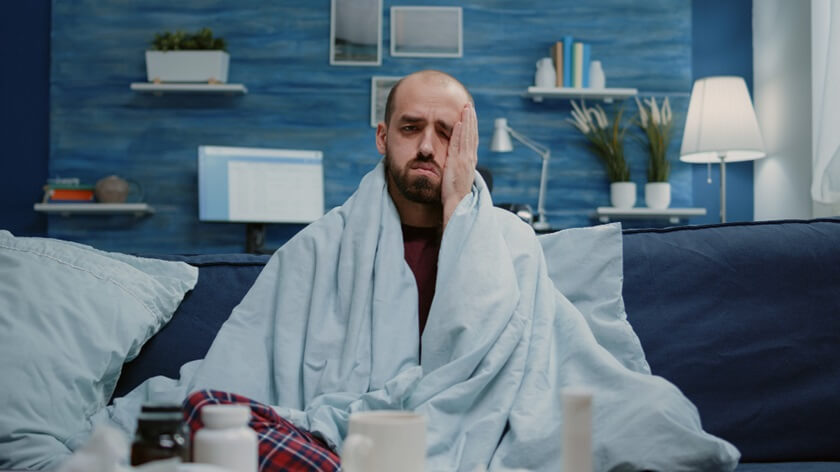There is some evidence suggesting that we are more likely to get sick if we are sleep-deprived. In a study conducted in the US, the health of 164 participants was monitored over the course of one week. All participants were given drops containing the rhinovirus—the culprit behind the common cold—after which their condition was observed to see how many would develop an illness. One group was allowed to sleep for eight hours at night, while the other group had to wake up after only six hours. It was noted that the group with less sleep had more cases of colds.
Sleep Deprivation and Immune System Function
Several other studies have shown that our immune system weakens even if we miss a single night of adequate sleep. This is because sleep plays a critical role in our body’s ability to produce cytokines, proteins that target infection and inflammation. When we’re sleep-deprived, our body produces fewer cytokines, making us more vulnerable to illness.
The Long-Term Impact of Poor Sleep
Chronic sleep deprivation can also lead to more serious health issues. Prolonged lack of sleep has been linked to an increased risk of chronic conditions such as heart disease, diabetes, and obesity. These conditions can further weaken the immune system, creating a vicious cycle where poor sleep leads to illness, and illness disrupts sleep.
Practical Tips for Better Sleep
To improve sleep quality, it’s essential to maintain a consistent sleep schedule, create a restful sleeping environment, and avoid stimulants like caffeine before bed. Practicing relaxation techniques such as deep breathing or meditation can also help in achieving a better night’s sleep.





